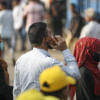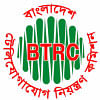Illegal int'l calls thrive on Teletalk
State-owned carrier Teletalk's failure to kill around 22 lakh unregistered connections is allowing a huge volume of illegal international calls to be made, depriving the government of revenue.
Citing security concerns, the government announced that subscribers would be disconnected after May 31 if they failed to biometrically re-register their SIMs. But its own carrier, Teletalk, continues to allow unauthorised connections making a farce of the re-registration move.
In May, Teletalk had 44.63 lakh subscribers but about 22 lakh of them reregistered their SIMs before the deadline. Industry sources said unregistered but active Teletalk SIMs are now being used for making and receiving illegal international calls.
In the first half of June, Bangladesh Telecommunication Regulatory Commission (BTRC) detected 27,464 SIMs being used for illegal international calls.
Of them, it was detected that 41 SIMs were from Banglalink, 36 from Robi, 19 from Grameenphone, 1 from Airtel and 260 from Rankstel.
The remaining 27,143 SIMs were from Teletalk and all of them were either illegal or had fake registrations.
The people making illegal international calls have apparently not been affected at all by the biometric re-registration of SIMs.
In the second half of May, when carriers had not blocked unregistered SIMs, as many as 28,894 connections were detected making illegal calls and of them an astounding 28,442 were from Teletalk, according to the information of SIGOS, a Germany-based telecommunications company that specialises in developing telecommunications testing solutions.
The BTRC has been using SIGOS solutions since 2008 to detect SIMs that are carrying international calls illegally.
“It is true we failed to block unregistered SIMs but institutionally we are not supporting illegal call termination,” said Gias Uddin Ahmed, managing director of Teletalk.
Gias on Monday claimed that they had been able to block four to five lakh connections. He said, “We disconnect detected numbers within 10 minutes of the BTRC informing us and we are complying with all the regulations regarding it …” He said compliance should not be the same for the top players and the bottom players who are fighting to survive.
Every day more than 1,800 SIMs, detected by the SIGOS technology, make illegal calls through six mobile carriers.
Despite various measures taken by the government, the huge number of SIMs being used for this illegal activity raises questions about the biometric re-registration.
Senior officials of different carriers said even though they blocked their unregistered SIMs, Teletalk was not doing so and that it was discrimination.
“We found most of the unregistered SIMs are being used in illegal call termination, which causes us as well as the government to lose revenue,” said a senior executive of a carrier.
Another top official of a carrier said Teletalk's technology was not so backdated that it needed this much time to block unregistered connections. If the illegal SIMs were blocked, the legal call volume would go up, increasing government's earnings.
Teletalk had been opposing the regulator's move against this illegal activity. It had even written to the posts and telecommunications ministry to intervene in the SIM detection process.
The Daily Star obtained a 2010 letter on the issue in which Teletalk said if this was taken away from Teletalk, then the government would earn only 5.5 percent as revenue share, and that the majority share of the money would go to foreign carriers and eventually taken out of the country.
“It doesn't necessarily mean that Teletalk desires the continuation of this unauthorised traffic but it strongly protests hankering after the fulfilment of a malign and baneful conspiracy which might result in reduction in government revenue,” read the letter, signed by Md Mujibur Rahman, the then Teletalk managing director.
When contacted, Mujibur acknowledged that he wrote the letter and that he had raised the concern several times. “As a government company Teletalk deserved some privilege,” he said.
When Teletalk wrote the letter, the rate for every minute of incoming international call was $.03 and of that 57.25 percent went to the government exchequer.
Later, the rate was cut to $.015 per minute.
As of June 15, average incoming call minutes were around 7.73 crore a day. It was around 7.74 crore minutes in May, 7.88 crore minutes in April, 7.99 crore minutes in March, 8.06 crore minutes in February and 8.05 crore minute in a day in January, according to the telecom regulator.
If a nexus could bypass the regular channel of international calls, it could bag a huge amount of money every day.
Before going through the biometric re-registration, State Minister Tarana Halim had said the re-registration would improve the situation regarding illegal calls, but statistics showed a different story.
When contacted on Tuesday, Tarana said she needs to go through the information again. “But BTRC tells me legal calls were increasing which will secure governments revenue.”
About the Teletalk's issue, LIRNEasia's Senior Policy Fellow Abu Saeed Khan said Teletalk's licence was illegally granted and lawlessness remained in its core since then.
“Political and bureaucratic nexus have initially siphoned off millions of dollars from Teletalk's hardware procurement. Once the shopping slowed due to budgetary constraints, the syndicate moved to illegal termination of international calls,” said Saeed, a former secretary general of the Association of Mobile Telecom Operators of Bangladesh.
Referring to the telecoms secretary's de facto chairmanship at the Teletalk's board, Saeed said the current and previous bureaucrats should clarify their position on the state-owned mobile provider's gross misconducts.
“Otherwise, the illegal termination of overseas calls will multiply at an uncontrollable rate.”
Recently, the BTRC fined Teletalk Tk 50 lakh for not adhering to the commission's instructions over illegal calls but the lone state owned operator is yet to pay the fine.
At that time, the BTRC had detected 1,256 Teletalk SIMs being used in illegal VoIPs. As per the rule, Teletalk was supposed to block the connections but it took no steps in this regard.

 For all latest news, follow The Daily Star's Google News channel.
For all latest news, follow The Daily Star's Google News channel. 







Comments